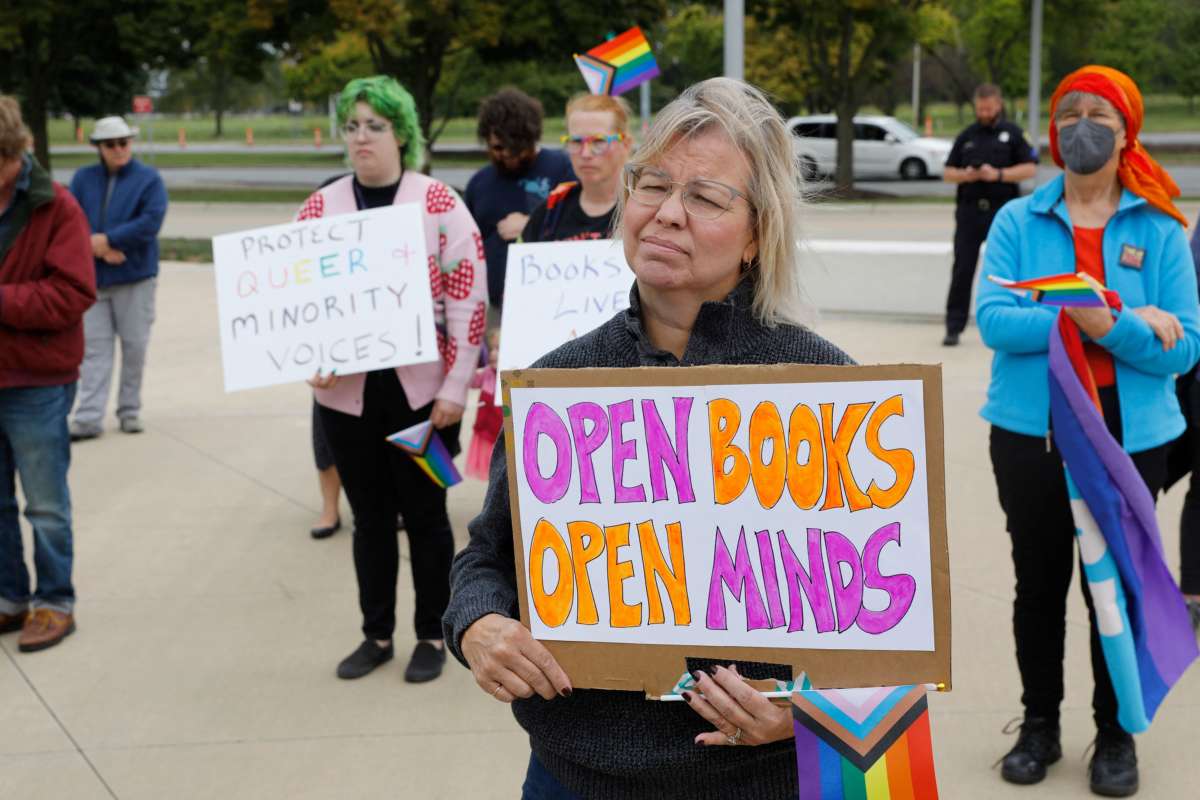At this month’s Association for Rural and Small Libraries (ARSL) conference in Chattanooga, Tennessee, a librarian shared a list of community collaborations her institution has built over the last several years. These alliances with private and public institutions have brought services into the library, including a food pantry, a diaper bank, blood drives, and other services running alongside the story times and book checkout perhaps most recognizable as library work. Drawing on research about so-called anchor institutions, she made the case that the library, particularly in rural settings, is at the center of the community, often the place everyone knows they can go when they need something — the new James Patterson novel or something else. During the Q&A, she was asked how the library responded when armed protesters showed up to shut down a recent Drag Queen Story Hour.
“They didn’t get a lot of traction with our patrons,” she said. “I mean, they all know we’re a diaper bank.”
In the wake of rising attempts to censor books about Black, Brown and queer lives — American Library Association statistics demonstrate that we are on track to blow past last year’s record-setting book ban numbers — the role of libraries in our communities is under attack. Libraries do not exist to circulate smut to your children. We are among the last public institutions standing, a bulwark against the collapse of civic life following more than four decades of consistently eroding support for public goods.
Those who see libraries as a threat have certainly made their voices heard over the past 18 months. From armed threats against public librarians in northern Idaho to the defamation campaigns run against school librarians in Louisiana, the organized extremist right is controlling the narrative. However, study after study makes it clear that these are minority opinions, and evidence suggests that such attacks on the right to read are largely “public and performative.” The sound of censors is loud indeed, and our institutions have their hands full responding to attacks, assuaging fears and reminding library workers that even though it may seem easiest to just keep books that attract attention off our shelves, such “silent censorship” is as insidious as the fire-and-brimstone that lands on the front page.
But censorship is not the only way that books get removed from the hands of readers. If a library doesn’t have the budget to purchase a volume, that book is effectively banned. If a library is restricted by publishing company licensing terms that restrict libraries from sharing digital materials widely, books are effectively banned. If a library building is closed because it finally has too many buckets set under too many drips from a roof that needed repairs 20 years ago, books are effectively banned. If a library does not have sufficient staff to select and acquire materials, to catalog and classify, to circulate and preserve, to read to children, to teach people to use computers, to assist medical researchers with systematic reviews, books are effectively banned. If a person lives too far away from a library to get to it, books are effectively banned. If they show up and it’s closed due to staffing issues, books are effectively banned. There are many ways to ban a book.
The current surge in challenges is part of a much longer story about bipartisan support for disinvestment in public goods, public institutions and public sector workers. What the right gets right about libraries is that they matter, and that any vision of a fully privatized and corporatized society requires dismantling those institutions that have survived, if barely, from the Reagan era until today. Moral panics often serve as cover for organized abandonment and violent attacks, and this blockbuster book ban moment is no different.
We know that the way we define a problem shapes what we can imagine as solutions. As long as we agree to the terms set by a Christo-fascist right, organized over decades and currently mobilized to attack schools and libraries and the people who work in them, we’ll be stuck defending the indefensible, arguing for the right to read on very narrow terms. We must advance an affirmative vision of libraries as one among many public institutions that require investment, not just in terms of books on shelves, but also in the infrastructure — buildings, people, systems — that connects people to each other and to the resources and services that enable us to live more than bare lives.
Violent attacks on libraries and library workers must be addressed and resisted by all of us, and certainly more effectively by the state. More than one librarian at the ARSL conference said matter-of-factly that patrons had thrown books at them — just an ordinary part of working life. Simultaneously, we must direct our energy toward reversing four decades or more of structural attacks that render libraries unable to serve their communities effectively. Those acts are violent too, attacks against the public that undermine our ability to read — and to get diapers, to give blood, to talk with our neighbors, and to value each other and the places where we live.
Join us in defending the truth before it’s too late
The future of independent journalism is uncertain, and the consequences of losing it are too grave to ignore. We have hours left to raise the $12,0000 still needed to ensure Truthout remains safe, strong, and free. Every dollar raised goes directly toward the costs of producing news you can trust.
Please give what you can — because by supporting us with a tax-deductible donation, you’re not just preserving a source of news, you’re helping to safeguard what’s left of our democracy.
